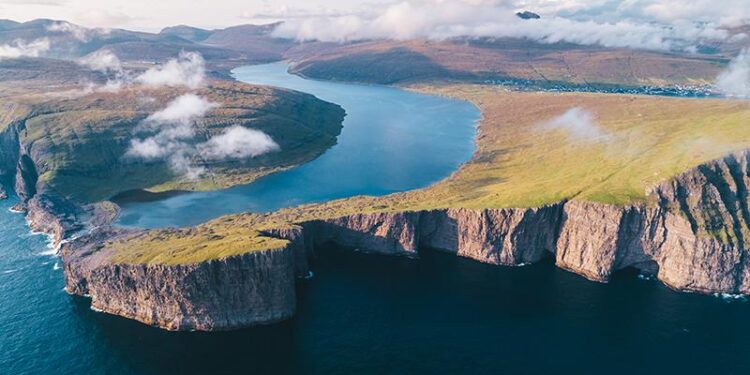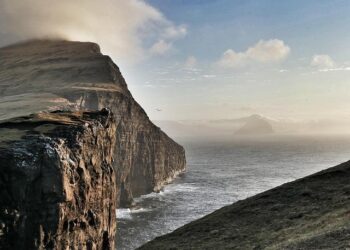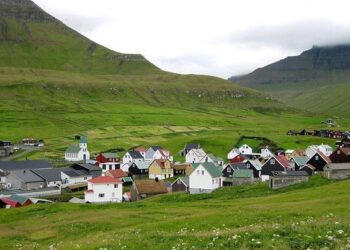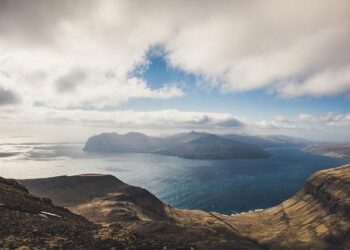A new video released by the Sea Shepherd Conservation Society offers a raw and unfiltered look into the traditional whale hunt known as the Grindadrap in the Faroe Islands. The footage aims to shed light on the controversial practice, which has long drawn criticism from animal rights groups and environmental organizations worldwide. By documenting the event firsthand, Sea Shepherd hopes to raise awareness about the ethical and ecological implications of the hunt and spark renewed debate over its future.
New Footage Sheds Light on Controversial Grindadrap Whale Hunt Practices
The recently released video footage from the Sea Shepherd Conservation Society offers an unprecedented glimpse into the traditional grindadrap whale hunt in the Faroe Islands. The visual documentation exposes not only the scale of the hunt but also the intense emotions and physical challenges faced by both the hunters and the animals. Controversial for decades, this practice sees hundreds of long-finned pilot whales driven into shallow fjords before being killed. Critics argue that the methods used raise serious ethical and conservation concerns, while supporters maintain it as an important cultural tradition rooted in the islands’ history.
Key elements highlighted in the footage include:
- The coordinated effort of small coastal communities mobilizing during the hunt
- Animal distress signals and visible struggle during the chase and kill
- Environmental impact seen in surrounding waters and marine population changes
- Age and gender breakdown of the whales targeted, highlighting the vulnerability of specific groups
| Aspect | Details |
|---|---|
| Whale Species | Long-finned pilot whale |
| Hunt Frequency | Seasonal, multiple times a year |
| Average Number Killed | 200-300 annually |
| Local Community Involvement | Widespread across island villages |
This new visual evidence prompts urgent discussions among international observers regarding animal welfare laws, traditional rights, and sustainable practices. It challenges viewers to confront the stark realities behind a time-honored custom and consider the ecological and ethical implications for future generations of both humans and marine life.
Sea Shepherd Urges Global Audience to Reconsider Tradition Amid Animal Welfare Concerns
The latest footage released by Sea Shepherd Conservation Society exposes the brutal reality behind the centuries-old tradition of Grindadrap in the Faroe Islands. The video captures the relentless hunt and slaughter of pilot whales, igniting a worldwide discussion on the ethical implications of such practices. Animal welfare advocates highlight the prolonged suffering experienced by these intelligent marine mammals, urging communities to rethink cultural heritage in light of evolving conservation values. This graphic exposé serves as a call to action for governments and citizens alike to prioritize humane treatment over historical customs.
While the practice is defended by locals as a means of sustainable resource use and cultural identity, international observers stress the growing conflict between tradition and modern animal rights standards. The following data succinctly contrasts key aspects of Grindadrap with global animal welfare benchmarks:
| Aspect | Grindadrap Practice | Animal Welfare Standard |
|---|---|---|
| Target Species | Pilot Whales | Protected Marine Mammals |
| Hunting Method | Mass Drive and Slaughter | Non-lethal Observation & Protection |
| Animal Suffering | Prolonged and Distressing | Minimized through Humane Protocols |
| Global Support | Contested Tradition | Increasing Advocacy for Ban |
- Rethink cultural practices to align with contemporary ethical standards.
- Encourage dialogue between local communities and international conservation groups.
- Promote education campaigns emphasizing animal cognition and welfare.
Experts Recommend Stricter Regulations and Increased Transparency for Future Grindadrap Events
In light of the new footage revealing the harsh realities of the Grindadrap, conservation experts are calling for comprehensive reforms to how these traditional hunts are conducted. Authorities are urged to implement stricter regulations aimed at minimizing animal suffering and ensuring sustainability. Key recommendations include:
- Mandatory use of non-lethal tracking technology to monitor pod movements
- Enforcement of humane kill methods with regular oversight
- Strict limits on hunt quotas based on scientific population assessments
- Annual independent audits of hunt practices by international marine biologists
Transparency remains a crucial demand from environmental groups who argue that better public access to hunt data would foster accountability. Experts suggest establishing a centralized database disclosing detailed information on each Grindadrap event, including location, number of animals hunted, and compliance reports. The proposed transparency measures aim to balance cultural heritage preservation with modern ethical and conservation standards.
| Recommended Regulations | Expected Outcome |
|---|---|
| Non-lethal tracking | Improved pod protection |
| Humane kill oversight | Reduced animal suffering |
| Quota limits | Species population stability |
| Annual audits | Enhanced accountability |
| Centralized hunt data | Greater public transparency |
Insights and Conclusions
As the newly released footage from the Sea Shepherd Conservation Society brings the traditional practice of Grindadrap into sharp focus, the debate over its ethical and environmental implications is reignited. This unfiltered glimpse invites global audiences to confront the complexities surrounding cultural heritage and marine conservation in the Faroe Islands. With wider awareness comes increased scrutiny, ensuring that this controversial chapter continues to be examined through the lenses of both tradition and sustainability.
















